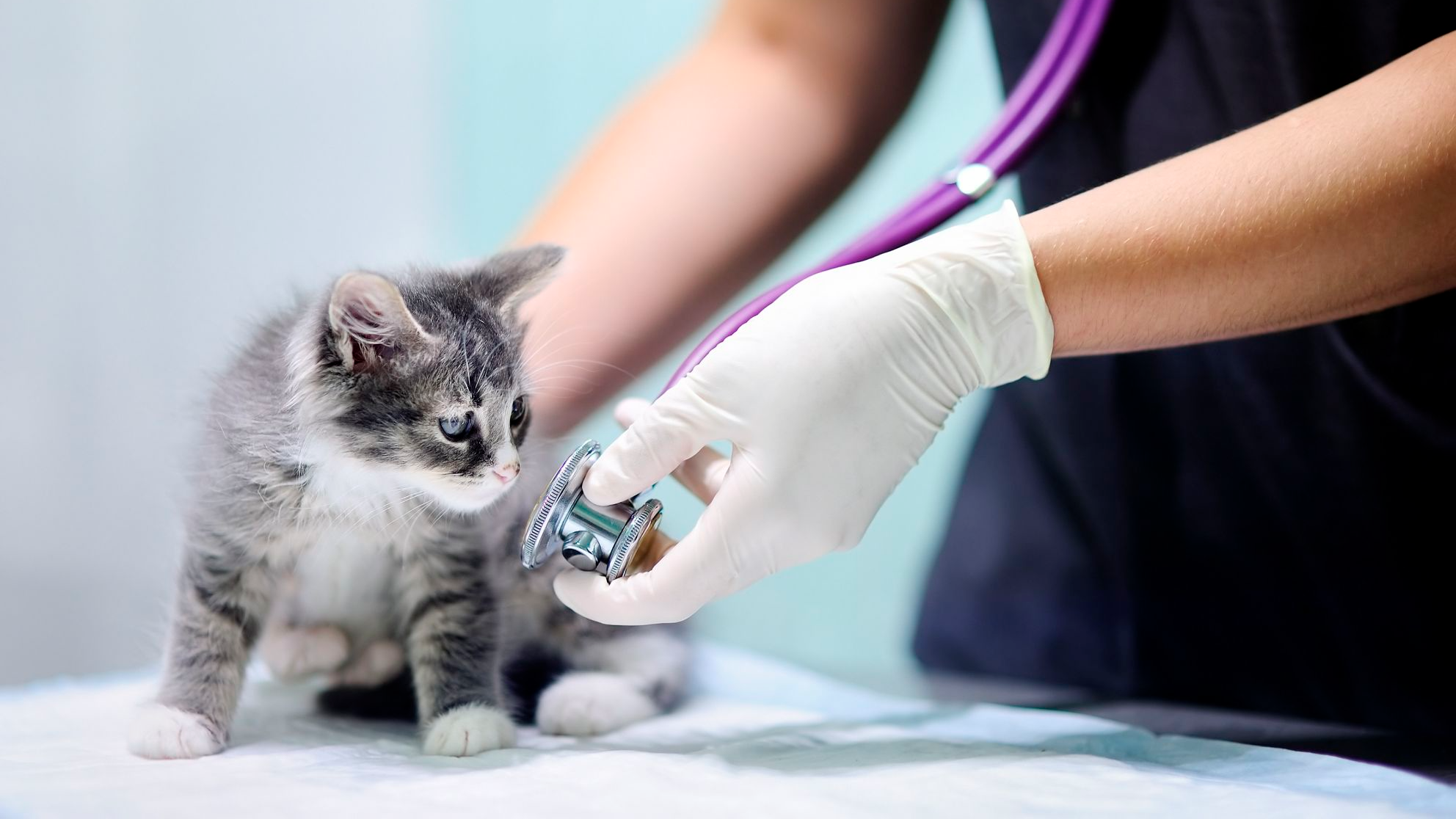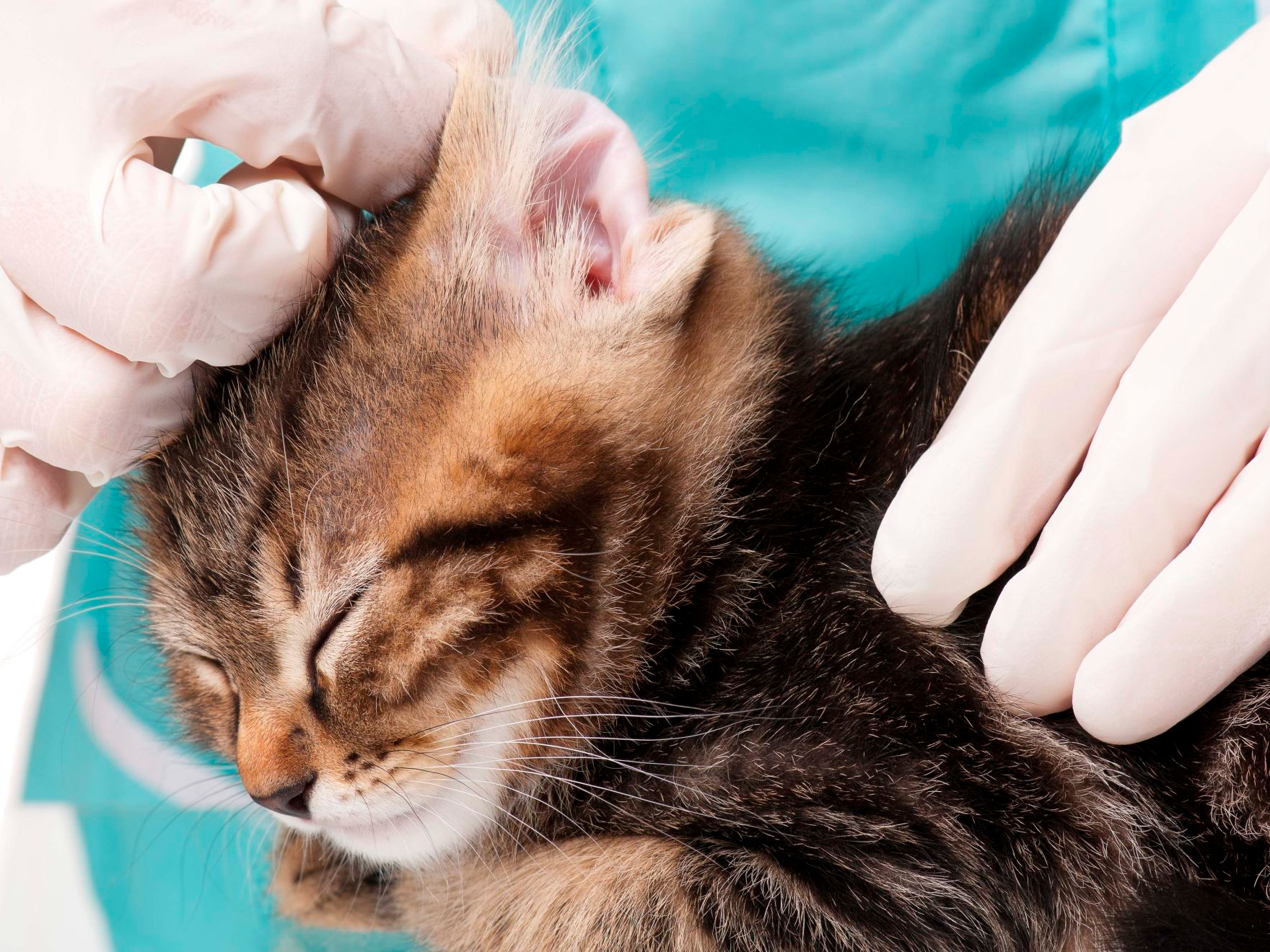Getting your kitten (and you) ready for their first vet visit
You finally have the cat you’ve always dreamed of. This is an exciting moment, but it’s also filled with a lot of firsts—for both you and your new four-legged friend. This includes taking your kitten or cat on a trip to the vet. The more prepared you both are for this moment, the more positive an experience it will be.
Forming a bond with your vet is important for both you and your kitty: they are going to help you make sure you have a healthy cat, from a wide-eyed kitten to adulthood.
We will help you navigate this first appointment so that you can help set your cat up for a long and healthy life.

When should you take your kitten to see the vet?
As a responsible pet owner, your cat’s health is obviously a top priority. Whether you have adopted or bought from a breeder, schedule a vet visit for your kitten in the first week of bringing them home.
What’s the urgency? Trusted shelters and breeders will have performed the required health checks at birth, as well as taking care of things like microchipping. But the new vet is a stranger that your cat or kitten needs to trust and feel at ease with (this goes for you too).
Health checks for your cat or kitten aim to empower their long-term well-being. The sooner you and your cat or kitten can get some face-time with the new vet, the better. Their expertise will guide you when it comes to vaccines, parasites, socialisation and general aspects of how best to care for your kitten or cat.
It’s sensible to find a vet and make an appointment in advance of picking your new cat or kitten up. Do your research and be sure to visit or call the practice in advance, to see the staff and overall environment.
Things to consider when finding a vet:
- Are people welcoming?
- What do the online reviews say?
- Is it a cat-friendly clinic?
How to prepare your kitten or cat for their first vet visit?
This first vet appointment is a positive moment for you and your cat or kitten. But it can be potentially stressful for both of you.
To help it go as smoothly as possible, you should:
- Remember your cat or kitten’s paperwork, which will be used to create their medical file
- Bring any documentation that the clinic has asked you to fill out
- Have your questions for the vet noted down
- Stay calm, if possible
Here are four things you can do to prepare your cat or kitten for their first vet visit:
Is the clinic within walking distance or is a car required? Either way, you will need to get your cat or kitten there safely. Transport options include a cat backpack, a cat crate or a cat carrier bag.
If you take a car to the vet, do a test run ahead of your appointment. Your kitten or cat may experience anxiety in the car, so you will need to help them overcome this before the big day.
It is sensible to make sure your feline is accustomed to their new mode of travel, before the day of the vet appointment. Leave the cat travel carrier around the house, with the door open.
You can make it more appealing by adding a blanket or much-loved toy in there. The goal is to show your four-legged friend that this is a safe place for them.
To prevent your kitten from feeling manhandled by the vet, try to gently explore the more sensitive parts of their feline body, as soon they come home with you. This can also be tried with an older cat, if you have adopted. Remember to never force it.
Expect the overall visit to be long, around one hour or so. Once you’re in the room with the vet, you don’t want to feel rushed. This will all help your cat or kitten to stay as calm as possible.
In the waiting room, pick a quiet spot and observe your cat’s behaviour. Being around other cats and dogs may have an effect. If they need some extra attention, give it to them. A reassuring cuddle or their favourite toy will be much appreciated. It is also best to avoid putting the carrier on the floor — kittens and cats prefer to observe from a higher viewpoint. Some clinics even have specific furniture for cat carriers.
Let's find the most adapted food!
Answer a few questions about your cat to discover a personalised food recommendation.

How your cat or kitten will be examined
During the first vet appointment, you can expect the following:
- Your cat will be weighed
- Their teeth, gums and mouth will be checked
- A full body check from ears to paws
- Their heart, lungs and abdomen will be listened to
- Their joints will be checked
- A stool sample may be taken, to check for parasites and worms
Your vet will be on hand to keep your kitten or cat calm during their first check-up. If there is an accidental pee or a bit of aggression, keep calm and provide reassurance. This can be an overwhelming experience at any age, no matter how much you’ve both prepared for it.
Once the check-up is complete, it’s time to ask the vet any questions you may have concerning your new cat or kitten. This can range from behavioural patterns you are noticing to your cat’s diet plan, your cat’s weight, socialisation tips and vaccination schedules.
If you are being sent home with medication or treatments, make sure you understand how to give it to your pet. It’s also a good idea to book follow-up appointments for the necessary.
Encouraging your cat to be social
As a responsible pet owner, you will be invested in making sure that your cat is properly socialised. This means introducing them to new people, places, sights, textures and sounds in a safe and caring manner.
This will help your kitten or cat to not panic when changes arise in their domestic environment and routine. Another benefit of socialising your kitten is preventing long-term problems with their behaviour as they mature. The more positive experiences they have as a kitten, the more adjusted they will be as an adult cat.
Kittens coming straight from a breeder will already have been exposed to other kittens and humans. They have a good head start therefore on socialisation. However, if you’ve adopted an older cat, you will have to note their behaviour and any potential triggers.
There may be some gentle work to do in creating positive associations for your cat. For example, carefully showing them new places and people, to help build their trust and confidence. Celebrate each milestone!
While cats and kittens are generally viewed as independent creatures, that doesn’t mean you can leave them alone for long stretches of time. Each feline is different but do look out for signs of separation anxiety and handle it appropriately.

Our Kitten Growth Programme nutritional recommendations
Our products are designed to accompany your kitten’s growth, helping provide meaningful benefits thanks to specifically chosen nutrients for each stage of life.
Take a long-term approach to your cat’s health
As a general rule, adult and senior cats should be taken to the vet at least once a year. Annual check-ups should be considered as a preventative approach to your cat’s long-term health care.
These regular check-ups are important for several reasons:
- They allow your cat to have positive associations with the vet
- They allow your cat to stay up-to-date with their vaccinations, an essential element to their overall health
- They help in spotting common cat illnesses that are easy to treat when caught in time
- They help in spotting common cat issues that come with age, such as weight gain or dental decay
- They allow you to check in with your vet about any concerns you may have for your pet
- They provide an opportunity to discuss options for neutering or spaying
- They help your vet to have the most up-to-date medical records for your cat
For kittens, be ready for frequent visits to the vet in those first few months. This will ensure that all necessary kitten vaccines are administered and allow for their growth pattern to be checked. During the first six months, your kitten will also potentially be spayed or neutered, which requires veterinary intervention.
This early life stage is when you may have the most questions for your vet. From advice on choosing cat health insurance to overcoming any grooming resistance, make the most of your vet’s expertise.
Never wait for the annual check-up if your cat or kitten shows signs of illness or distress. Call your vet immediately to book an appointment for as soon as possible.
Being proactive with your cat’s health will help ensure that they lead a long and healthy life by your side (or on your lap).
Find a vet
It's important to have identified a local vet before collecting your kitten. Find a vet near you.